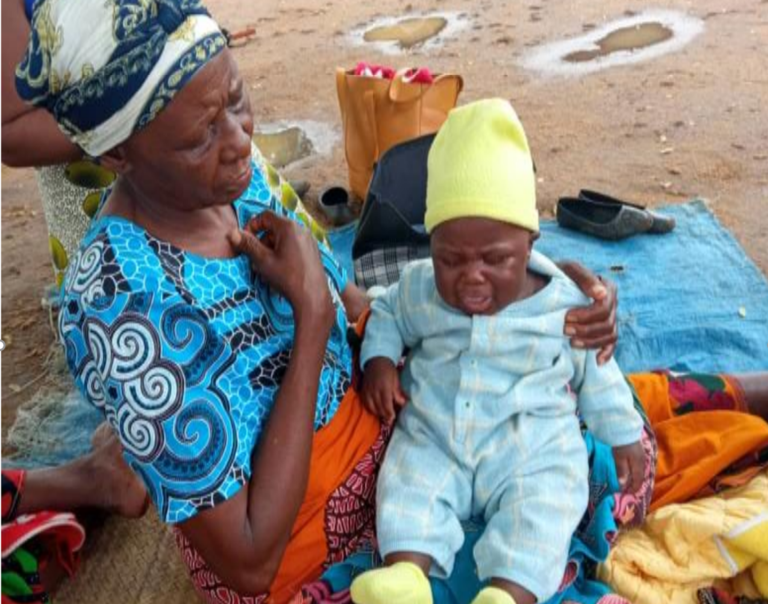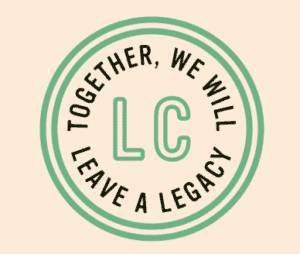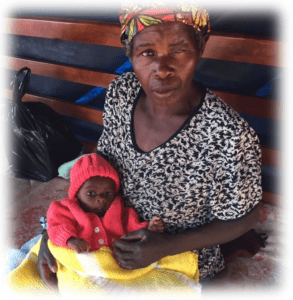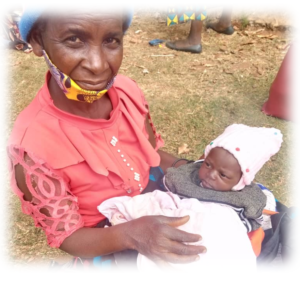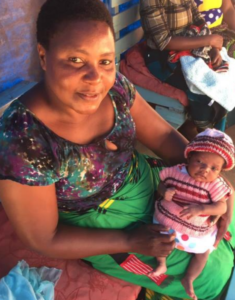11 babies were enrolled (6 orphans (including a set of twins), 2 infants whose mothers are undergoing chemotherapy, 1 baby whose mother is experiencing postpartum psychosis, 1 baby with cerebral palsy, and 1 baby whose mother is not producing any breast milk). 166 visits to babies were conducted. 4 babies were discharged. 247 babies are currently enrolled. Nurses distributed 616 tins of formula to infants requiring this food source for survival.
3 women were enrolled (all three received a total hysterectomy following a severe postpartum uterine infection), 2 women were discharged. 20 mothers were visited. 33 women are currently enrolled.
Baby Story. According to her family, they notice L’s behavior shift before they realized she was pregnant. Within a short period, her personality changed completely. Day to day was a struggle but somehow they managed to get her to her prenatal appointments, and eventually she had a normal birth. Initially after the delivery, it seemed she started to improve – she breastfed her baby and he was eager to feed. But, after two days, L. no longer wanted to nurse her baby, much less hold or touch him. She was admitted to the psychiatric hospital for treatment and her family brought her son to us for care.
Mother Story. This year Eliza was pregnant for the third time. Her first child did not survive the birth and so she carried a great deal of stress throughout both subsequent pregnancies. The days passed without event until November 9th when she presented to the labor ward with contractions. Upon assessment it was discovered that her baby was already deceased. Since she had had a prior c-section, this baby was also delivered by c-section. Within two days of the surgery, her abdomen started swelling and she began experiencing severe abdominal pain. She was referred to the Regional Hospital where her abdomen was reopened, and a total hysterectomy was done. Eliza’s health remained poor following the second surgery and more than two weeks passed before she walked independently again. Even though clinicians determined that she was ready for discharge Eliza will need additional support for some time at home. Life for poor women in Malawi is always physical (fetching firewood, drawing water, tending fields). When a woman is not able to complete these tasks, there are financial repercussions for the household, food instability worsens, and her surviving children face an increased risk of mortality. This is why we do what we do. Joyful Motherhood nurses will visit Eliza in her home to watch over her physical recovery and offer support. Donate to keep this work going.

